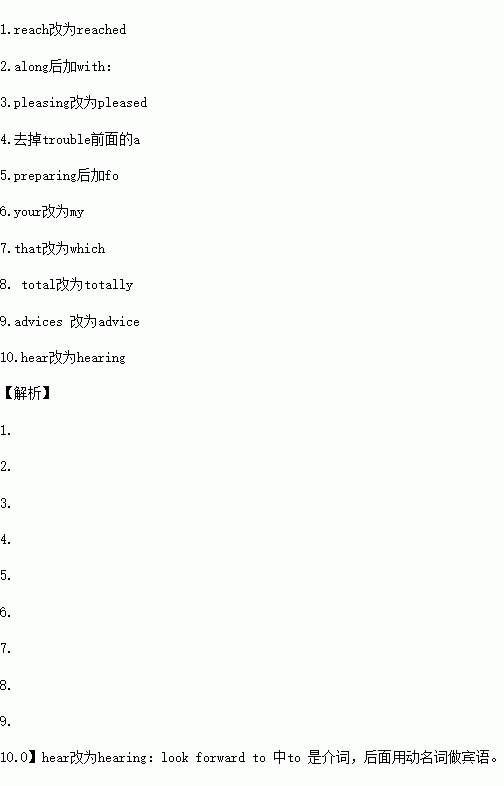Ő‚ńŅńŕ»›
∂ŐőńłńīŪ
ľŔ∂®”Ę”ÔŅő…ŌņŌ ¶“™«ůÕ¨◊ņ÷ģľšĹĽĽĽ–řłń◊ųőń£¨«Žń„–řłńń„Õ¨◊ņ–īĶń“‘Ō¬◊ųőń°£őń÷–Ļ≤”–10ī¶īŪőů°£īŪőů…śľį“ĽłŲĶ•ī Ķń‘Ųľ”°Ę…ĺ≥żĽÚ–řłń°£
‘Ųľ”£ļ‘ŕ»Īī ī¶ľ”“ĽłŲ¬©◊÷∑ŻļŇ(¶ę)£¨≤Ę‘ŕ∆šŌ¬√ś–ī≥Ųł√ľ”Ķńī °£
…ĺ≥ż£ļį—∂ŗ”ŗĶńī ”√–ĪŌŖ(£‹)ĽģĶŰ°£
–řłń£ļ‘ŕīŪĶńī Ō¬Ľģ“ĽļŠŌŖ£¨≤Ę‘ŕł√ī Ō¬√ś–ī≥Ų–řłńļůĶńī °£
◊Ę“‚£ļ1£ģ√Ņī¶īŪőůľį∆š–řłńĺýĹŲŌř“Ľī £Ľ÷Ľ‘ –Ū–řłń10ī¶£¨∂ŗ’Ŗ(ī”Ķŕ11ī¶∆ū)≤Ľľ∆∑÷°£
I°Įve learned that you reach Beijing last month for Chinese learning. How are you getting along your Chinese studies?
I°Įm pleasing to tell you that I°Įll go to Beijing to take part in an English Speech Contest this summer vacation. However, I have a trouble preparing it. I don°Įt know how to gather useful information of your speech. And I am unfamiliar with the language style of the speech article, that is total different from the common article. Could you give me some advices on the above problems?
Looking forward to hear from you!

